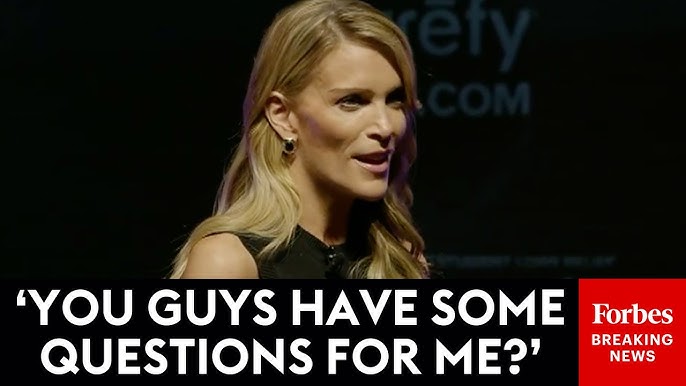Virginia’s Gubernatorial Race: A Litmus Test for Gen-Z Conservatives
The forthcoming gubernatorial race in Virginia will serve as a significant indicator of whether Gen-Z conservatives have been sufficiently mobilized by the tragedy of Charlie Kirk’s death. A regular student, 25-year-old Chloe Bolin, waited in a long queue to secure a good spot at the Turning Point USA’s rally at Virginia Tech, something she wouldn’t have considered doing a few weeks earlier. Instantaneously drawing her toward Kirk’s online content, the moment her TikTok ‘For You’ page displayed one of his videos about the organization he co-founded, she became interested in his message. A dedicated Christian, she felt an affinity with Kirk’s faith-based philosophies, despite not actively following him.
When it was reported that Kirk was assassinated during a campus talk in Utah on September 10, Bolin was deeply affected. She decided to attend the pre-planned Turning Point tour at Virginia Tech as a mark of solidarity for Kirk’s faith-based approach to politics. The loss of Kirk has roused the vigour of countless Gen-Z conservatives like Bolin, who have gone from relative passivity to an agitated political disposition. This has not gone unnoticed by Republican leaders, who see a chance to redirect this newfound spirit towards the forthcoming elections.
The Grand Old Party (GOP) and former President Donald Trump are now framing Kirk’s tragic death within a larger narrative; they portray Democrats as extremists motivated by hatred and violence. This sentiment has been further amplified with certain candidates already utilising Kirk’s assassination as part of their campaign propaganda, and as a way to solicit campaign funds for the midterm elections of 2026. The imminent Virginia governor’s race, featuring Republican Lieutenant Gov. Winsome Earle-Sears squaring against Democrat Abigail Spanberger, could be the first real litmus test to gauge whether this strategy will effectively help increase youth voter turnout.
In contrast to previous electoral cycles where the mobilization of young voters has been lukewarm, the Turning Point USA event at Virginia Tech called public attention as a noteworthy effort to successfully engage this demographic. While earlier data, taken from polls conducted by Atlas Intel two days prior to the 2024 presidential election saw then-candidate Harris receiving slight support from this target group, Kirk and the organization he led played a crucial role in helping Republicans significantly close this gap, eventually leading to a conclusive victory for them.
The influence of Kirk was such that even former President Trump publicly acknowledged Turning Point and Kirk’s instrumental roles in his ultimate win back in 2024. However, the tragic end to Kirk’s life has not seemed to greatly impact the upcoming election for the Virginia governor’s seat. An interesting occurrence to note is that Virginia has followed the pattern of electing a governor from the opposing party to the president’s since 1977, with the only exception being the 2013 election cycle.
Perhaps this trend and other indicators are leading many to predict that Democrats stand a good chance of winning this year’s gubernatorial race. Pre-electoral polls conducted during September indicate Abigail Spanberger, the Democratic nominee, to be approximately 10 points ahead of her rival, Winsome Earle-Sears. Furthermore, among voters from the 18-29 age range, Spanberger achieved 20% more support according to a survey carried out shortly after Kirk’s untimely demise.
The enthusiastic response to the Turning Point event at Virginia Tech, which boasts an enrollment of almost 40,000 students, however, was not as high as one might have expected. The auditorium housing the event was filled with less than 3,000 attendees, suggesting a certain level of apathy. Even among these attendees, a significant number seemed indifferent about the upcoming local elections; they chose to continue their conversations with peers without participating in the registration queries proposed by the event.
Several students expressed their anticipation for the 2028 presidential race, yet displayed uncertainty with respect to their potential participation in this year’s race or the mid-term polls scheduled for 2026. Bolin, a doctoral student of veterinary medicine who has historically only been involved in voting for presidential elections, expressed that Kirk’s death had startled her into speaking more openly about her views. Despite this newfound zeal, she remains uncertain about her prospective involvement in state-level and local elections. She decided not to participate in the voter registration process in Virginia.
An 18-year-old attendee of the event, walking amidst the crisp autumn leaves, pronounced his decision to vote for Earle-Sears as he found her views matched most closely with his own. However, his primary concern seemed to be the preservation of Kirk’s legacy, rather than the immediate politics of the election. Essentially, his interest was driven more by the long-term implications of Kirk’s ideologies rather than the short-term political gains.
An orator present at the Turning Point rally shared this focus on the broader implications of Kirk’s legacy rather than the immediate political fallout. He refrained from mentioning the imminent election during his speech. Instead, he stood next to displays of Kirk’s personal belongings to inspire attendees to openly express their political views and faith in emulation of Kirk.
He addressed the crowd, laying out a forward-looking perspective: ‘Aim for the long-term, work persistently towards goals that may not deliver instant gratification, but will indeed leave a positive footprint for years to come.’ This advice, centered around the spirit and principles that Kirk lived by, was delivered in hopes of sustaining his legacy and inspiring the audience to engage more actively in the political process, regardless of their immediate electoral choices.

